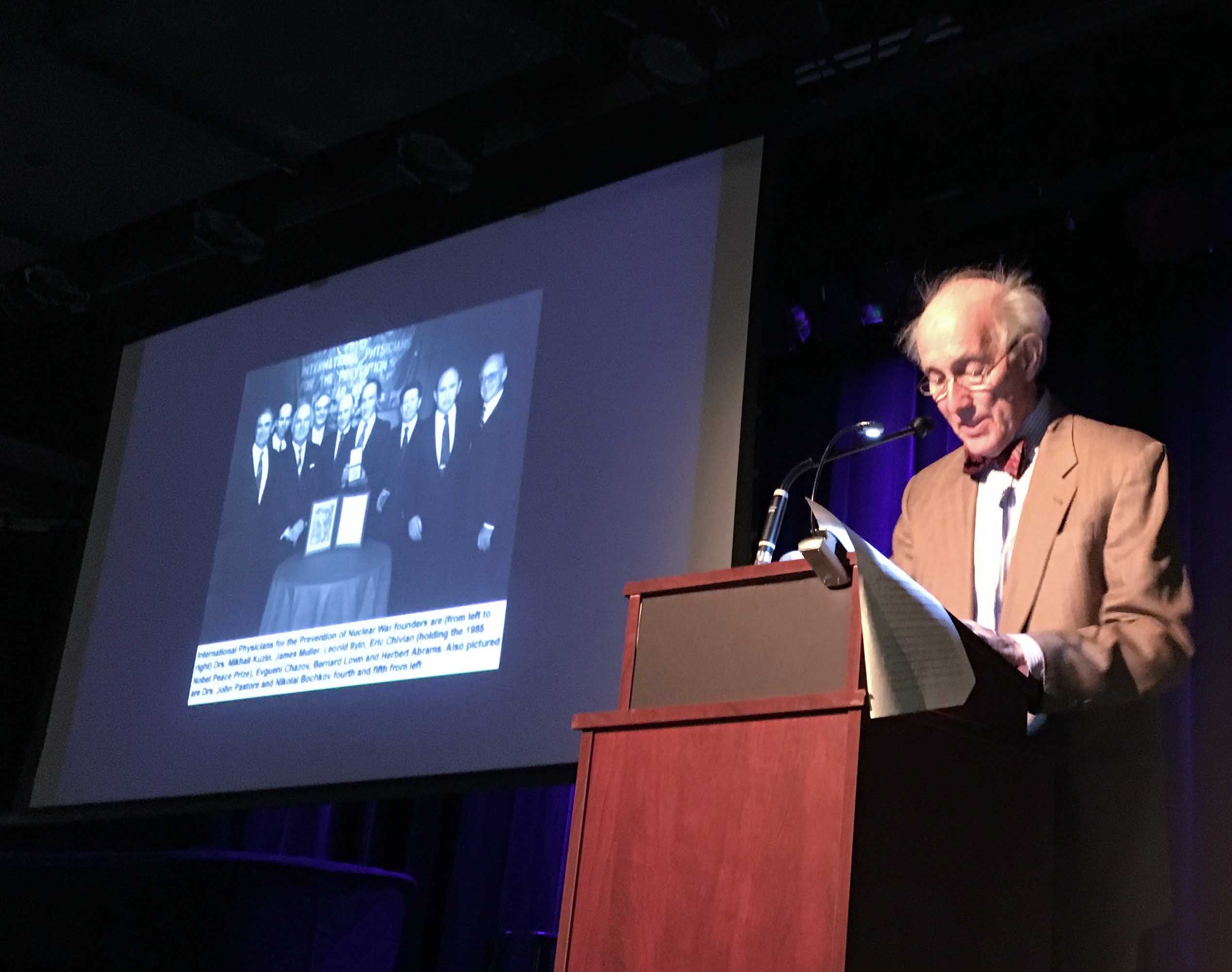Mass Audubon’s Broadmoor Wildlife Sanctuary hosted Dr. Eric Chivian presenting the Eighth Jean and Henry Stone Memorial lecture on March 26 at The Center for the Arts in Natick.

The failure of humanity to grasp what we are doing to global physical, chemical, and biological systems is the greatest problem in the history of our species on this small planet.
Dr. Chivian discussed why it is so difficult for many people to recognize global environmental changes, and to grasp the significance of these changes for human life. Our brains are wired to see what is happening right in front of us right now—we do not do very well with seeing things that are not obvious, that happen incrementally, or that occur over large areas or in other parts of the world.
Dr. Chivian talked about how a medical model can help people understand the implications of our altering the global environment, by translating the abstract, technical science of these changes into the concrete, personal, everyday language of human health. He described some of the barriers to grasping global environmental changes, and gave examples of the medical consequences of losing organisms like polar bears and ecosystems like coral reefs, and discussed the role of the “precautionary principle” in medicine. Using a medical model of a severe bacterial infection in a child and the need to take action if there is a risk of death, he made the case that the greater the risk, the less evidence is needed to act. He made a persuasive case that there is sufficient evidence of global environmental changes influenced by human activities that immediate action is required to prevent catastrophic consequences within this century.
Dr. Chivian’s book, Sustaining Life, How Human Health Depends on Biodiversity describes the subject in greater detail.
Dr. Chivian, is a physician and Nobel laureate, Director of the Program on Preserving the Natural World and Founder and Former Director of the Center for Health and the Global Environment at the Harvard Medical School.

